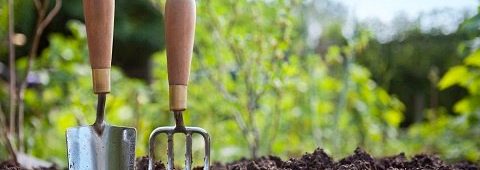This website uses cookies so that we can provide you with the best user experience possible. Cookie information is stored in your browser and performs functions such as recognising you when you return to our website and helping our team to understand which sections of the website you find most interesting and useful.

What is Japanese Knotweed?
Japanese knotweed is a plant native to Japan, Taiwan and northern China. It is highly invasive and can be extremely destructive. It has been known to grow as high as four or five metres in a matter of months with roots spanning even further. Everyone who owns or occupies property, whether residential or commercial, should be vigilant in checking whether or not Japanese Knotweed is growing or encroaching on their property. For more information on how to identify it, see the Japanese knotweed identification sheet.
Why should I be concerned with Japanese Knotweed?
Japanese Knotweed can cause significant structural damage to buildings and has been known to be capable of growing through asphalt and other hard surfaces causing structural difficulties in serious cases. Eradicating Japanese Knotweed can be costly and time consuming and requires waste disposal specialists for its removal.
Unlike ordinary plants or weeds, simply uprooting the plant or using a traditional plant and weed killer will not solve the problem! You can be sure that this pest is likely to be back with a vengeance if you do not seek specialist help.
Is leaving Japanese Knotweed alone an option?
It is never advisable to leave the Japanese Knotweed as it is, given the impact it can have both on your property and on adjoining landowners property. It can also have a negative impact on the value of your property (in some cases by decreasing it by 50%) and may affect your ability to obtain a mortgage.
Legally, you can be fined up to £5,000 or sent to prison for up to two years if you allow contaminated soil or plant material from Japanese knotweed to spread into the wild. In addition, there has recently been a court ruling which has confirmed that a landowner will be held responsible if they do not prevent the plant from spreading from their land to adjoining properties.
The case in question involved a group of homeowners in South Wales, who took action against Network Rail after Japanese knotweed grew into their garden from the adjoining railway. The knotweed had been present on the railway for 50 years and treatment had been ongoing since 2008. Despite this, it was still encroaching onto the homeowners’ gardens.
The Court considered the extent of the nuisance suffered by the homeowners, and decided in their favour based on the circumstances. The Court when ruling said in summary; that the presence of Japanese knotweed was enough (without any physical damage), as it had the potential to seriously affect the market value of the homeowners’ properties.
If you decide to leave the Japanese Knotweed alone, and it encroaches on other land, you risk facing legal action from adjoining landowners, whether private or public. It is also likely that you will be forced to take expensive action to eradicate the Japanese Knotweed. The position could be even worse if it has already caused damage to the adjoining land and you may be forced to pay compensation.
Equally, if you are a landowner and you think your property is being affected by Japanese Knotweed encroaching from adjoining land, you should consider taking action, even before there is any evidence of damage. Once Japanese Knotweed is present, the problem will only grow (quite literally) and as a result it is likely to affect the value of your property.
If you are unlucky enough to have sustained damage to your property by Japanese Knotweed already, if the problem originated elsewhere you may be able to claim damages for the loss you may have incurred.
In summary…
If you are a landowner, you should make it a priority to check that your property is not affected by Japanese Knotweed. If you think this is a possibility, we would recommend you contact a specialist in the area to assess this for you.
If you are an adjoining landowner to a property which suffers from Japanese Knotweed, you should review the position regularly and consider obtaining specialist advice with regards to taking action against the owners of the land on which the Japanese Knotweed originates. If you are unsure, we would again recommend taking specialist advice.
If you are considering buying or letting property, whether residential or commercial, you should be sure to check whether or not the property is affected by Japanese Knotweed. This could be by it originating on the property or encroaching from neighbouring land.
The due diligence enquiries carried out in the conveyancing process should help to flush out whether or not there is a presence of Japanese Knotweed, however you can never be too careful and we would always recommend that an inspection be carried out as an added layer of comfort!
If its presence is revealed, you can then discuss with the seller/landlord to decide how is best to deal with the problem to enable you to consider whether or not this is the right property for you!
If you believe that you may have a problem with Japanese Knotweed, and would like some legal advice on the implications of its presence and/or any legal advice in relation to any enforcement action taken against you or against others, we have commercial property and dispute resolution specialists who can advise you at every step of the way.
This is not legal advice; it is intended to provide information of general interest about current legal issues.
Share this post:
